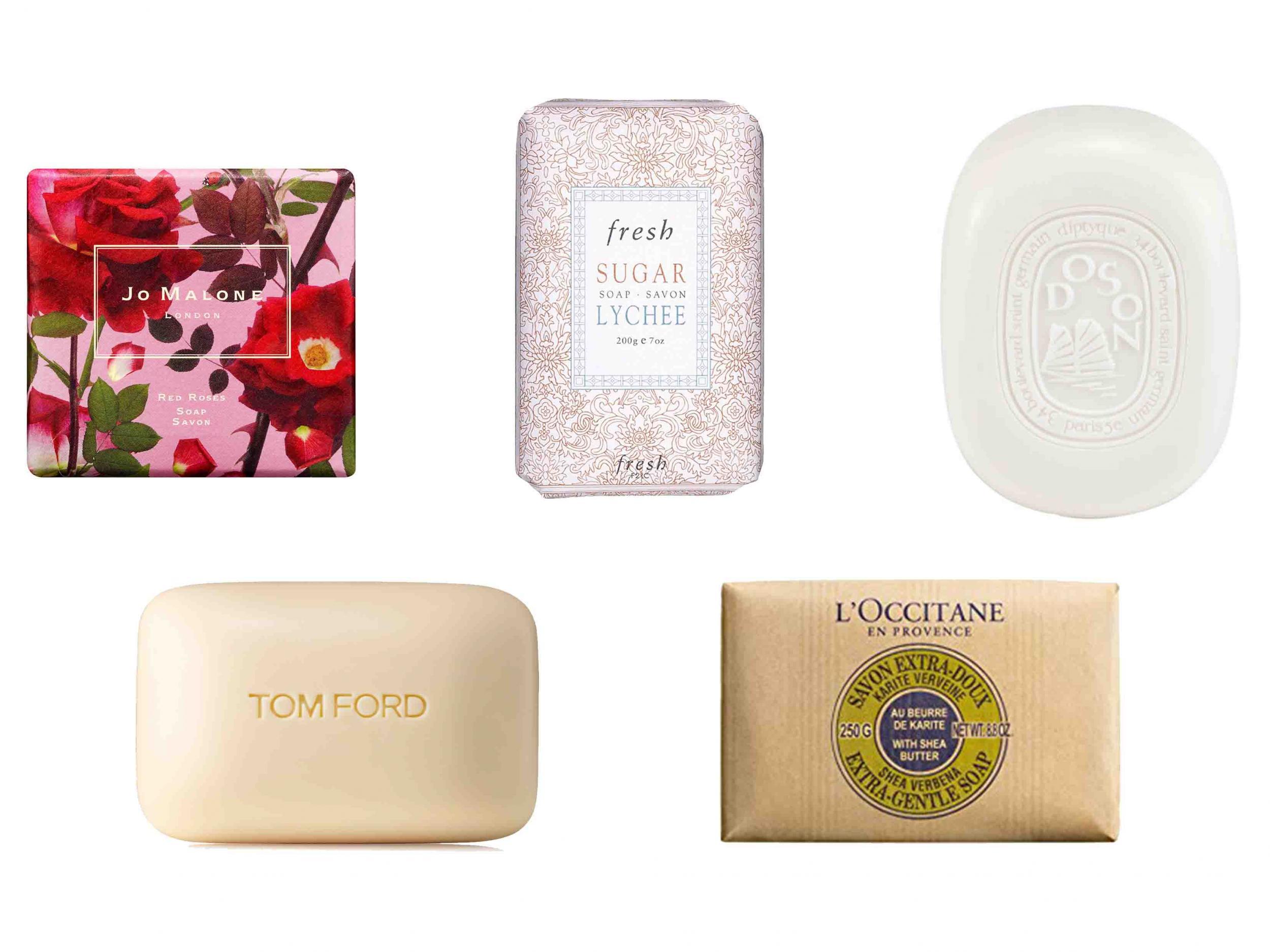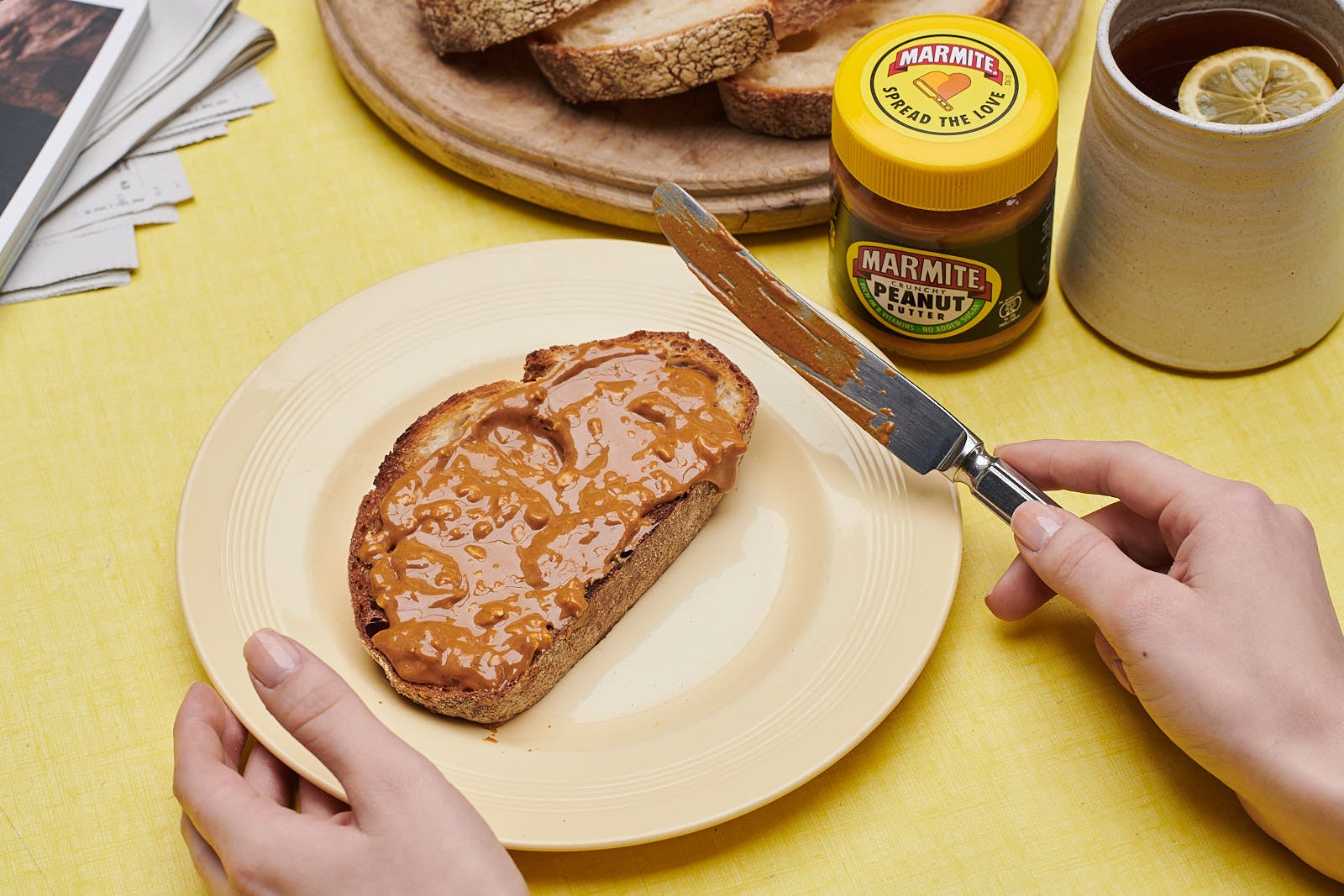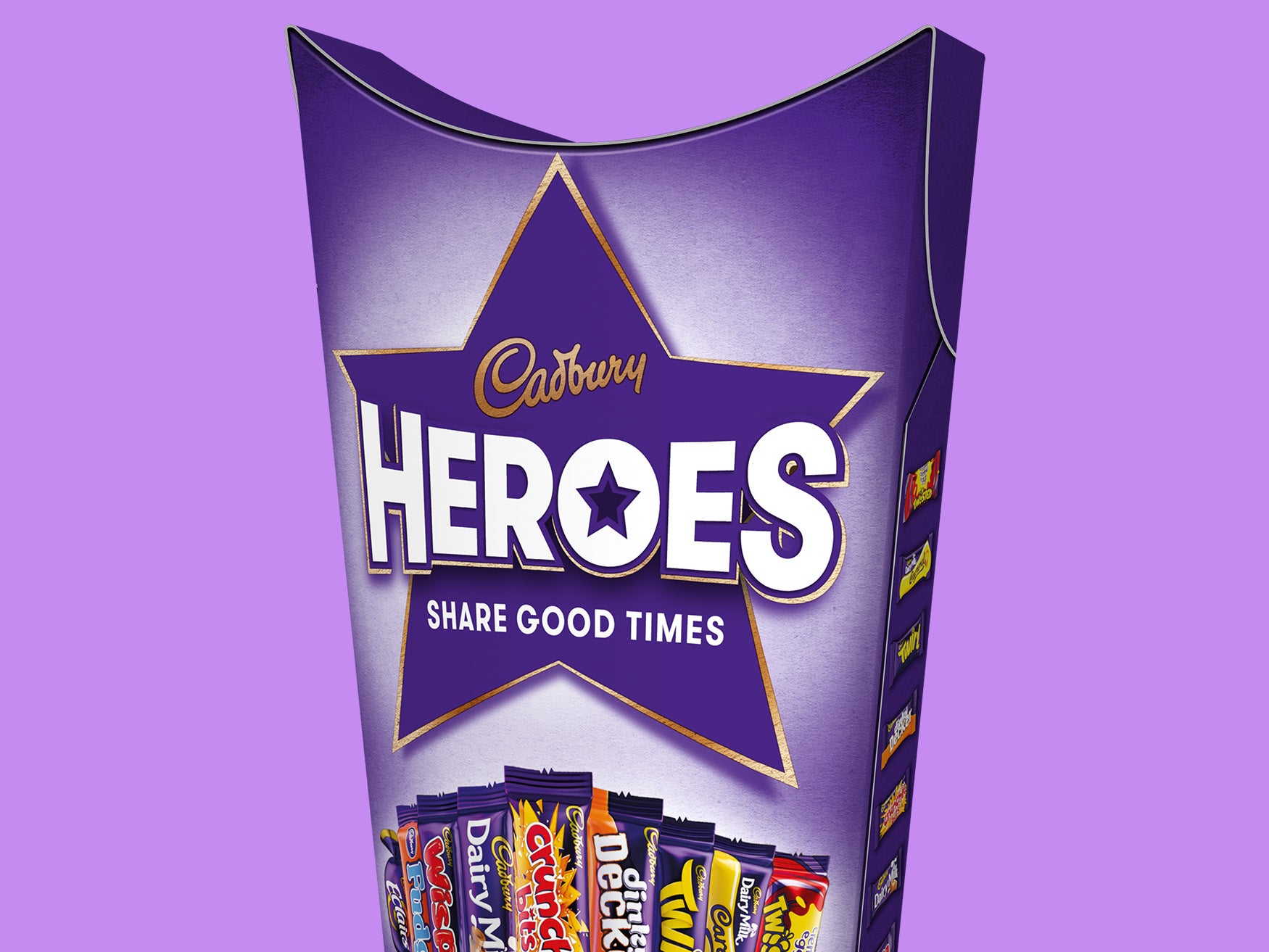Lifestyle Barometer: Your guide to what’s hot and what’s not this week from Love Island to vegan pets
From smear tests to cotton buds and Cadbury’s Heroes, this is our guide to what’s hot and what’s not

GOING UP ▲

▲ At-home smear tests
This week, the NHS announced that it is going to offer at-home smear test kits as part of a trial to increase the number of women having cervical cancer screenings.
On Wednesday, health bosses revealed the trial of “self-sample” tests would begin in some parts of England and, if successful, could be rolled out across the UK.
The tests will be sent in the post, with the hope that they’ll boost the falling numbers of women attending screenings.
The announcement came just days before the 10th anniversary of the death of Big Brother star Jade Goody, who died from cervical cancer on 22 March 2009.
In the months following Goody’s death, around half a million more women than usual had smear tests. This drastic increase in numbers became known as the “Jade Goody effect”.
However, in recent years the amount of women attending their cervical cancer screenings has been dropping.
By the end of March last year, it was reported that less than three quarters of women eligible for smear tests had been screened.

▲ Bars of soap
In recent years, more and more people have turned to liquid and foam soap.
However, according to Kantar Worldpanel – an international consumer panel company – that’s all about to change.
A recent report by the company found that shoppers around the globe spent £68.3m on bars of soap in the year to September 2018, up £2m on the year before.
And it doesn’t look like its growth is going to stop there, with sales increasing 3 per cent faster than liquid soaps and shower gel products.
Speaking exclusively to The Independent, a number of the beauty industry’s top brands revealed that they too had seen an increase in sales of bar soap.
Natural skincare company L’Occitane said it sold 18,078 bars of its bestselling soap, the Verbena Shea Butter Extra Gentle, in the UK since April 2018. It sold an impressive 199,068 bars in the UK in total during this time.
Similarly, Lush – the brand known for inventing the bath bomb – reports that it sold 9 million bars of soap in 2018 and almost 10 tons of the stuff globally since 2005.

▲ Divisive food launches
This week has seen the announcement of two food launches in the UK that are sure to divide opinion: Marmite Peanut Butter and Heinz Beanz Pizza.
To celebrate American food company Heinz’s 150th birthday this year, Deliveroo is bringing back the Heinz Beanz Pizza after it was discontinued in 2003.
But if you want to get your hands on the beany pizza alternative, you’ll have to be quick.
Only 150 limited-edition Heinz Beanz Pizzas will be available per restaurant, while stocks last, from 29 March.
The Heinz Baked Pizza will be on offer, through Deliveroo, from pizza restaurants including Joe Public (London), Pizza Punks (Glasgow, Newcastle and Belfast) and Proove (Manchester, Leeds and Sheffield).
The latest spreadable innovation to hit UK supermarket shelves is Marmite Peanut Butter, launched after “overwhelming demand” from consumers.
The 225g jars, priced at £2.50, will be available to order online at Ocado from 25 March, before rolling out to all leading nationwide retailers from 7 April.

▲ Vegan pets
Veganism is on the rise in the animal kingdom, a study tells us.
Out of 3,670 dog and cat owners around the world, 35 per cent are interested in putting their pets on a vegan diet, according to a survey by the University of Guelph in Canada. Meanwhile, 27 per cent of respondents who follow a vegan diet themselves have already done so.
More than half (55 per cent) said certain measures would need to be met in order for them to commit to changing their pet’s diets, such as gaining veterinarian approval and ensuring good nutrition.
The study’s lead author, Dr Sarah Dodd said she was surprised at how many pet-owners were already feeding their animals exclusively vegan food.
“That percentage, 27 per cent, might sound like a small number, but when you think of the actual numbers of pets involved, that’s huge, and much higher than we expected.”

▲ Cadbury’s Heroes
There will soon be two new additions to Cadbury’s signature Heroes box.
The chocolate company announced that the box, which includes mini Dairy Milk bars, Eclairs and Twirls, will now also include miniature versions of Double Deckers and Crunchies.
The good news is that Cadbury has assured consumers that none of the other chocolates in the box will be replaced.
“With the introduction of these iconic chocolates to the Cadbury Heroes mix, chocolate fans are sure to be in for a real treat,” Cadbury states.
“No flavours will be removed from the existing Cadbury Heroes offering, providing a more even spread across all of the variants, making this a perfect selection for sharing with friends and family.”
The 290g Heroes box sells for £4.50 and will be available to purchase from April 2019.
GOING DOWN ▼

▼ Sponsored social media posts
A growing number of Britons are “suspicious” of sponsored Instagram and Twitter posts, a study by YouGov has found.
The survey of 1,269 adults revealed that 44 per cent of Britons would not watch or read a post at all if they saw it was sponsored, while 71 per cent said they find sponsored endorsements harder to believe.
In addition, 90 per cent of participants said they would like all celebrities and social media influencers to make it clear when a product recommendation is sponsored.
This comes as 43 per cent of those who purchased a product following an endorsement admitted they weren’t sure whether the recommender had been paid.
YouGov’s findings come after guidelines were introduced by the Advertising Standards Authority (ASA) and Competition and Markets Authority (CMA) at the end of 2018, following a string of reports that influencers weren’t declaring when they had been paid for content.
As a result, it is now illegal for brands or individuals to post sponsored content without disclosing it.
Instead, the new rules insist that paid-for posts “must be obviously identifiable as such” by adding labels such as “ad”, “advertising” or “advert”.

▼ Gucci
Just a month after the blackface scandal, Gucci is facing criticism over its new diversity programme.
On Tuesday, the fashion house announced its campaign Gucci Changemakers on social media.
According to the Italian brand, the campaign will be a “community fund and scholarship programme for North America alongside a global volunteering programme” that “will fuel the company’s commitment to creating lasting social impact in our communities and within the fashion industry”.
The initiative includes a $5m (£3.8m) fund dedicated to building “strong connections and opportunities within the African-American community and communities of colour at-large, while bringing positive change and inspiring solutions for a better future”.
However, fans have been quick to condemn the brand, questioning why its new programme is limited to North America.
On Instagram, where the announcement was liked more than 90,000 times, one person wrote: “Where is Gucci’s Changemakers community fund and scholarship programme for Europe? We also need change here.”
Another said: “This is great and full of positive intentions, but why is your action only dedicated to the US black community in the States? It’s very close to stigmatisation, don’t you think.”

▼ Love Island
This week, reality television show Love Island came under scrutiny following the death of one of its stars, Mike Thalassitis.
Thalassitis, who appeared on the show in 2017, was found dead in a north London park. Police have confirmed they are not treating the death as suspicious.
Following the news, stars of the show criticised the lack of mental health care they received after exiting and called for its organisers to provide better help to contestants.
Kady McDermott, who was on the show in 2016, explained the detrimental impact instant fame can have when participants leave the villa.
“Hopefully going forward reality shows will help more with the aftermath of being on one, because I can say it definitely didn’t happen after my series when lots of us needed it,” she tweeted.
“People’s lives change overnight and no one can mentally be prepared for it. The good and the bad.”
As a result of the backlash, ITV confirmed that contestants on Love island will be offered therapy, social media training and financial advice.

▼ Cotton buds
Nearly 90 per cent of British people are using cotton buds incorrectly, research has found.
Some 62 per cent of Brits said one of the main uses for cotton buds was to clean their ears, while more than a fifth admitted that it was their only use for them, according to YouGov research.
The study also found that men are more likely than women to exclusively use cotton buds for earwax removal, with 31 per cent of men admitting to doing so, in comparison to 14 per cent of women.
This goes against medical advice, with the NHS stating that you should “never” try to remove earwax with a cotton bud, your fingers or any other object.
Between 1990 and 2010, figures show that more than a quarter of a million children in the US were admitted to hospital emergency rooms on account of injuries sustained from cotton buds.
It’s estimated that more than 13,000 children in the US are hospitalised due to use of cotton buds every year.

▼ Food recalls
Tyson Foods – the world’s second largest processor and marketer of chicken, beef, and pork – has recalled more than 69,000 pounds of frozen chicken strips, the United States Department of Agriculture (USDA) has announced.
The American food company was forced to recall the products after the USDA’s Food Safety and Inspection Service (FSIS) received two complaints that metal was found in the chicken strips.
The department has revealed that there have been no reports of “adverse reactions” from anyone who has eaten the chicken but said those concerned about an “injury or illness” should call their doctor.
As a precaution, the FSIS has also called on anyone who may have the chicken strips in their freezers to either throw them away or return them to the store from which they were purchased.
The affected products include the brand’s buffalo and crispy style ready-to-eat products that were produced on 30 November 2018 – all of which have a best before date of 30 November 2019.
Join our commenting forum
Join thought-provoking conversations, follow other Independent readers and see their replies
Comments
Bookmark popover
Removed from bookmarks